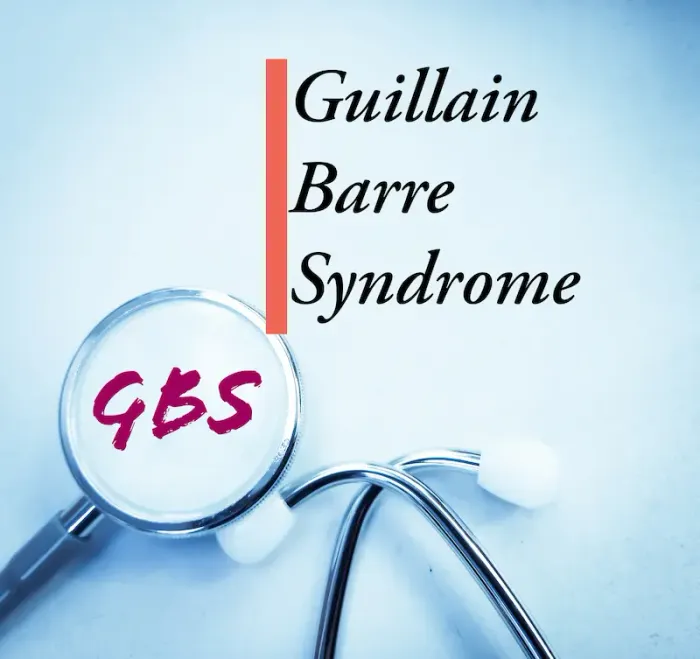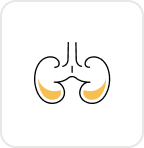Guillain Barre Syndrome Overview and Diagnosis
Explore Guillain-Barré Syndrome (GBS), its symptoms, causes, and risk factors. Learn how it is diagnosed and the importance of early detection for effective treatment.

Written by Dr. J T Hema Pratima
Reviewed by Dr. Dhankecha Mayank Dineshbhai MBBS
Last updated on 1st Sep, 2025

Introduction
Guillain-Barré Syndrome (GBS) is a rare but serious neurological disorder where the body’s immune system mistakenly attacks the peripheral nerves, the nerves outside the brain and spinal cord. This can lead to muscle weakness, numbness, and, in severe cases, paralysis. While GBS can be frightening, early diagnosis and treatment can help most people recover well.
In this article, we’ll discuss what GBS is and how it affects the body, common symptoms to watch for, possible causes and risk factors, how GBS is diagnosed, treatment options and recovery and tips for managing GBS.
What is Guillain-Barré Syndrome?
GBS is an autoimmune disorder, meaning the immune system, which normally fights infections, starts attacking healthy nerves. This damages the nerve coverings (myelin sheath) or the nerves themselves, disrupting signals between the brain and muscles. As a result, people with GBS experience weakness, tingling, and sometimes paralysis.
The condition often develops rapidly, with symptoms worsening over days or weeks before stabilizing. Most people recover, but the process can take months or even years.
Consult a Neurologist for the best advice
Symptoms of Guillain-Barré Syndrome
GBS symptoms usually start with weakness and tingling in the legs, which then spreads to the arms and upper body. Common signs include:
• Tingling or numbness (often starting in the feet or hands)
• Muscle weakness (difficulty walking, climbing stairs, or holding objects)
• Pain (muscle aches, cramps, or shooting pain)
• Loss of reflexes (knee-jerk or ankle reflexes may disappear)
• Difficulty with facial movements (trouble speaking, chewing, or swallowing)
• Breathing problems (in severe cases, due to weakened chest muscles)
In some cases, GBS can lead to paralysis, requiring hospitalization and ventilator support.
What Causes Guillain-Barré Syndrome?
The exact cause of GBS is unknown, but it often follows an infection. The immune system, while fighting the infection, mistakenly attacks the nerves. Common triggers include:
• Recent infections (especially stomach flu or respiratory infections)
• Campylobacter jejuni (a bacteria found in undercooked poultry)
• Epstein-Barr virus (EBV)
• Zika virus
• COVID-19 (rarely)
• Vaccinations (very rarely, some vaccines may trigger GBS)
• Surgery or trauma (in some cases)
How is GBS Diagnosed?
Since GBS progresses quickly, early diagnosis is crucial. Doctors use a combination of:
1. Medical History & Physical Exam – Checking for muscle weakness, reflexes, and recent infections.
2. Lumbar Puncture (Spinal Tap) – Testing cerebrospinal fluid for elevated protein levels (common in GBS).
3. Nerve Conduction Studies (NCS) & Electromyography (EMG) – Measures how well nerves send signals.
4. Blood Tests – To rule out other conditions like Lyme disease or vitamin deficiencies.
If you or a loved one experience sudden muscle weakness or numbness, seek medical help immediately.
Get Your Health Assessed
Treatment and Recovery
While there’s no cure for GBS, treatments can speed up recovery and reduce complications. The two main therapies are:
1. Intravenous Immunoglobulin (IVIG) – A blood product that helps block harmful antibodies.
2. Plasmapheresis (Plasma Exchange) – Filters harmful antibodies from the blood.
Severe cases may require:
• Breathing support (ventilator if muscles weaken too much)
• Physical therapy (to regain strength and mobility)
Recovery Timeline
• First few weeks: Symptoms may worsen before stabilizing.
• Next few months: Gradual improvement begins.
• Long-term recovery: Some people may have lingering weakness or fatigue.
Tips for Managing GBS
Supportive care and lifestyle adjustments can aid recovery. Here are some tips for managing GBS:
1. Follow Medical Advice – Stick to prescribed treatments and therapies.
2. Physical Therapy – Helps regain muscle strength and coordination.
3. Rest & Nutrition – A balanced diet and proper rest aid recovery.
4. Emotional Support – GBS can be stressful; counseling or support groups help.
5. Monitor Breathing – Seek immediate help if breathing becomes difficult.
When to See a Doctor?
If you notice:
• Sudden weakness in legs/arms
• Tingling or numbness spreading quickly
• Difficulty breathing or swallowing
Don’t wait; consult a neurologist immediately.
Final Thoughts
GBS is rare but serious. Early detection and treatment improve recovery chances. If you or someone you know experiences sudden weakness or numbness, seek medical help right away. With proper care, most people regain strength and return to normal life.
Consult a Neurologist for the best advice
Consult a Neurologist for the best advice

Dr. Aditendraditya Singh Bhati
Neurosurgeon
18 Years • MBBS(2004), DNB Neurosurgery(2014); MNAMS; Fellow Neuroendoscopy
Delhi
Apollo Hospitals Indraprastha, Delhi
(100+ Patients)

Dr. Sarthak Mehta
Neurologist
6 Years • MBBS , MS Mch ( Neuro )
Bengaluru
Apollo Clinic, JP nagar, Bengaluru

Dr. Ganeshgouda Majigoudra
Neurologist
10 Years • MBBS, MD ( GENERAL MEDICINE) DM (NEUROLOGY)
Bengaluru
Apollo Clinic, JP nagar, Bengaluru
Dr. Annakula Ramu
Neurologist
7 Years • MBBS, MD General Medicine, DM Neurology
Jagtial
Sairam Neuro and Children Hospital, Jagtial

Dr Rajashekar Mummadi
Neurologist
3 Years • MBBS, DNB General Medicine, DRNB Neurology
Hyderabad
Dr Ram's Neuro Clinic, Hyderabad
Consult a Neurologist for the best advice

Dr. Aditendraditya Singh Bhati
Neurosurgeon
18 Years • MBBS(2004), DNB Neurosurgery(2014); MNAMS; Fellow Neuroendoscopy
Delhi
Apollo Hospitals Indraprastha, Delhi
(100+ Patients)

Dr. Sarthak Mehta
Neurologist
6 Years • MBBS , MS Mch ( Neuro )
Bengaluru
Apollo Clinic, JP nagar, Bengaluru

Dr. Ganeshgouda Majigoudra
Neurologist
10 Years • MBBS, MD ( GENERAL MEDICINE) DM (NEUROLOGY)
Bengaluru
Apollo Clinic, JP nagar, Bengaluru
Dr. Annakula Ramu
Neurologist
7 Years • MBBS, MD General Medicine, DM Neurology
Jagtial
Sairam Neuro and Children Hospital, Jagtial

Dr Rajashekar Mummadi
Neurologist
3 Years • MBBS, DNB General Medicine, DRNB Neurology
Hyderabad
Dr Ram's Neuro Clinic, Hyderabad


